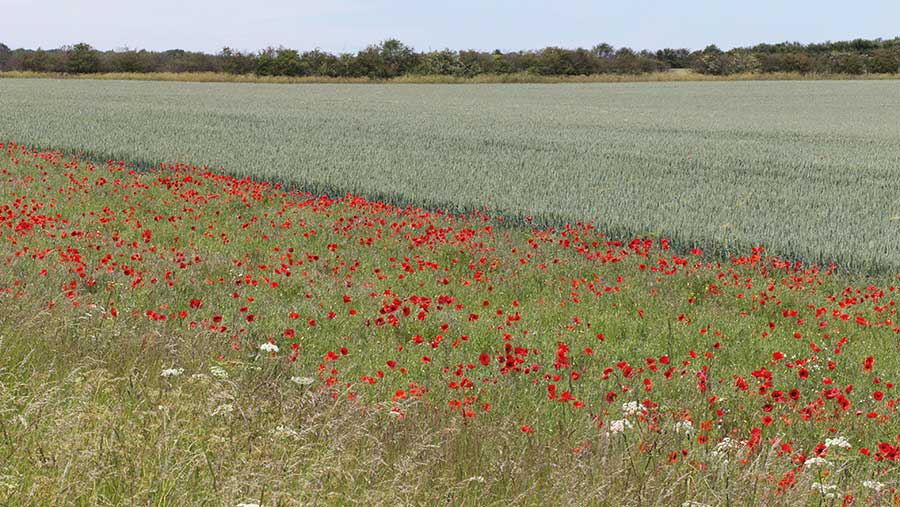Farmers cutting food production for more stable incomes
 © Tim Scrivener
© Tim Scrivener Farmers in England are cutting back on their food production to devote more land to green schemes and diversified businesses, sparking fears of further food shortages.
Defra is diverting more money from direct support to agri-environment schemes, including Countryside Stewardship (CS) and its new Sustainable Farming Incentive (SFI) scheme. The Basic Payment Scheme will be completely phased out by 2028.
Amid price volatility, the rising cost of inputs and weather extremes, some farmers are already reducing food production and putting more land into agri-environment schemes, such as CS and the SFI.
See also: Farmers warn of potato and veg shortages later this year
Andrew Brown farms 250ha in Caldecott, Rutland, of which 40% is permanent pasture. This year, he has cut his productive capacity in half (essentially producing 1,000t less of wheat) and has entered 90ha into the CS Mid Tier scheme.
“It’s a stable income. I have not got to gamble against the vagaries of the weather and the Chicago Board of Trade with the volatility in the markets and the huge cost of all the inputs,” he told Farmers Weekly.
Mr Brown said the UK government was risking further food shortages if his plans were replicated by other farmers. And it would be forced to import more food from countries with lower standards to maintain supply – if it is available.
Steve Elnor runs a small family farm of about 40ha near Grantham, in Lincolnshire. He is focusing on non-farming income, including diversified enterprises such as caravans and glamping cabins.
Mr Elnor sold his flock of 80 ewes 18 months ago and used this income to buy hot tubs for his glamping cabins and pay for labour to look after a pumpkin patch and a maize maze.
The farm’s 10-year Higher Level Stewardship scheme ended last autumn, so he has joined CS and is interested in the Educational Access (ED1) funding, which brings more than £300 per school visit.
Managing risk
“More farmers are looking at their land and thinking how to manage their time, their risk and their capital – and that automatically steers you away from food production,” he said.
“We are putting land into CS because it provides a secure income. I’m also getting personal satisfaction from looking after the birds and wildlife. Diversified income has now become more important to me than the core farming business.”
Defra told Farmers Weekly farming and nature “can and must go hand in hand”, and this is essential to support resilient food production.
Its Environmental Land Management schemes will “pay farmers to take actions that are good for the farm business, good for food production and good for the environment”.
The department is also supporting farmers to produce food profitably and sustainably, including £600m in grants for equipment to help them become more productive, he added.
